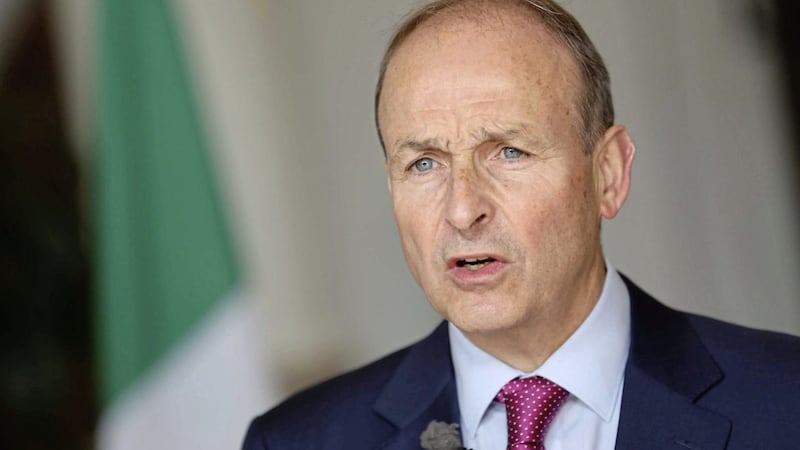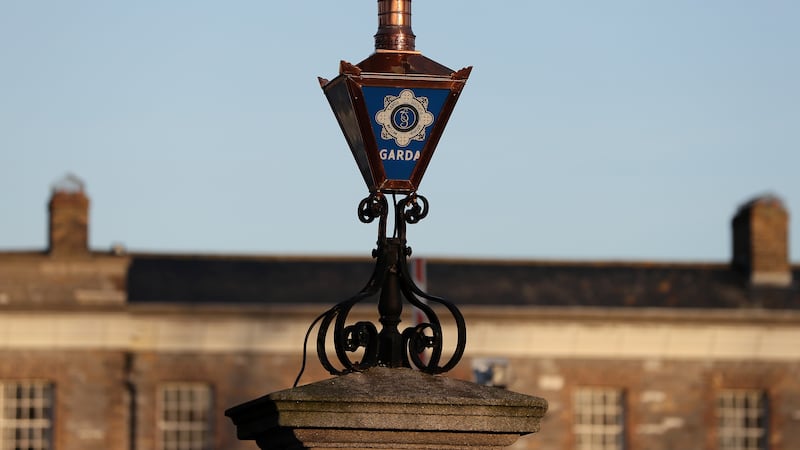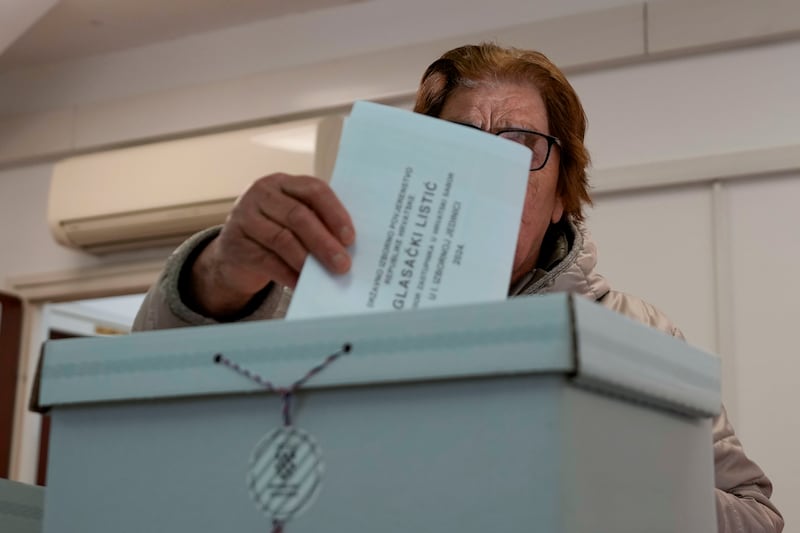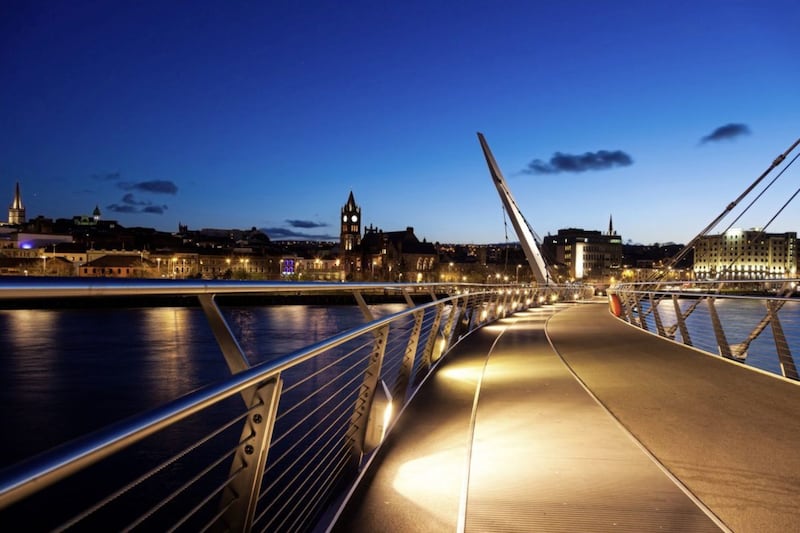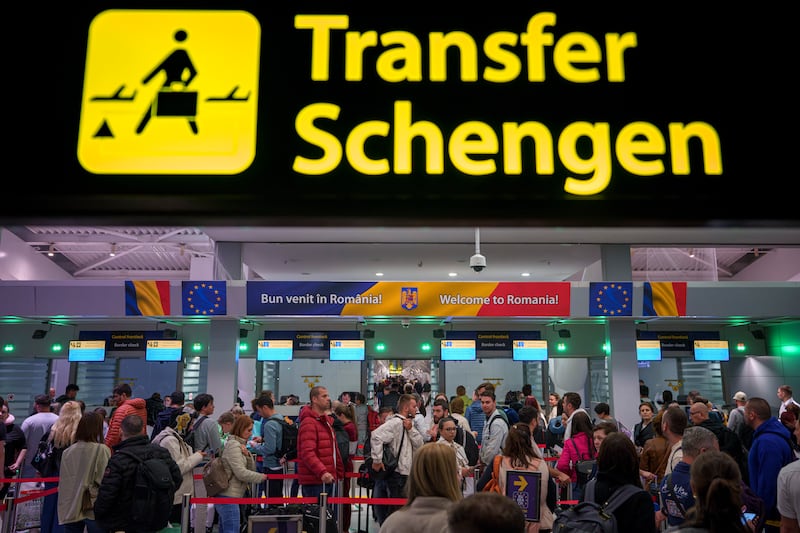The range of sanctions agreed by EU leaders will “hit hard” at Russia and its economy, but will not stop the attack against Ukraine, the Taoiseach has said.
Micheal Martin said the package of measures agreed to punish Russia for its invasion of Ukraine is “comprehensive” and will attack the country’s finance, industry, trade, energy and transport sectors.
EU leaders agreed a fresh set of sanctions against Russia following an emergency summit in Brussels late yesterday.
Mr Martin said the attack was a “gross violation” of the territorial integrity of Ukraine.
Mr Martin admitted that there will be “a price to pay” for European countries as a consequence of the sanctions.
He also defended the decision not to remove Russia from the Swift network, an international financial system.
“People have different perspectives on the efficacy or value of Swift in itself, so I don’t think we should singularly focus on Swift because the sanctions will hit hard at the industrial base, in terms of areas that will hurt the Russian economy,” Mr Martin added.
“Over time these sanctions will have an impact. It won’t halt what is happening.”
He also rejected claims that the EU held back in its package of measures.
“We haven’t held things back. The rationale and logic of President Putin that underpins this attack has nothing to do with Swift. What he is doing is reckless, irresponsible and morally wrong,” he said.
“President Putin has decided on this course of action. It is appalling and immoral and putting people at risk.
“Europe has responded very strongly. In its totality it is very strong.
“To launch this brutal attack on the Ukrainian people, to attain some sort of historic ideal he (Putin) has in his head about restoration of empire, harking back to a bygone era.
“We have to take that on board, that that is the mentality and rationale underpinning this.”
He said that Ukrainian President Volodymyr Zelensky spoke to EU leaders during its emergency summit on Thursday night.
“People were struck by the extraordinary courage of the Ukrainian president,” Mr Martin added.
“It was a moment that caused considerable reflection afterwards, in terms of the political and existential plight that Ukraine is in right now and also the president himself, who said he was staying in Kyiv and really was pleading for any assistance that could be given.”
Mr Martin said the sanctions will “hit hard”.
“It is a very comprehensive range of measures covering finance, industry, trade, energy and transport,” he added.
“They will have impact. They will not stop Russia now from doing what it is doing.
“Many reflected last evening that essentially the Russia decision and attack represents an existential crisis facing the world order and undermines the multilateral rules-based global order that we have had since the end of the Cold War, and that has serious implications all round.
“The EU needs to continue to develop its own self-reliance on energy and on other areas to be more strategically resistant.
“We have to be honest with our people, there will be a price to pay for this.
“That is a consequence of President Putin’s actions. We have to stand up to our principle and values.
“This is going to be a long haul, this will not be short term.”
Mr Byrne played down disagreements with the EU and said the latest package of measures are the “broadest sanctions the European Union has ever imposed on anybody”.
Asked on RTE radio about the Ukrainian president’s claim that the country is being left to fight alone, Mr Byrne said the EU is not a military organisation.
“The European Union is not involved in military action in relation to Ukraine,” the minister said. “That’s just not simply something that could ever be envisaged.
“But the sanctions that have been put in place, and Ireland has been pushing for the widest possible sanctions, the sanctions that have been put in place are extremely broad.”
Mr Byrne confirmed that Ireland had backed calls for action in relation to Swift, but said the important thing is unity.
“Our priority as an Irish Government was to have unity around the table. That was very, very important,” he said.
“Having said that, we pushed and will continue to push for the broadest possible sanctions. So, yes, the Irish Government has no difficulty whatsoever with the Swift system being sanctioned, and that’s something that we would support.”
